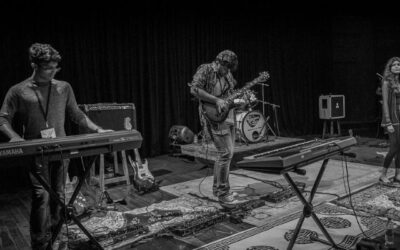If you’re a pop music fan, you might have seen Charlie Puth (the artist behind the hits Attention and We Don’t Talk Anymore) gain even more popularity after he spoke about what it’s like to have perfect pitch. One of the stories he told on Jimmy Fallon was that he got in trouble when he was younger for replicating the sound of the school fire alarm, since he had managed to perfectly make note of its pitch.
Perfect pitch is a pretty highly coveted quality to have for a musician. The list of famous musicians who are thought to have perfect pitch ranges across generations and genres, including Mozart, Mariah Carey and musical prodigy Jacob Collier. But what exactly is perfect pitch, and does it really help make better music? What about musicians who aren’t blessed with perfect pitch – are they at some sort of disadvantage? In this post, let’s go over what perfect pitch is, and see how it can be applied to the process of music.
What is Perfect Pitch?
Having perfect pitch means that you’re able to identify and recreate musical sounds and notes directly without having to compare it to other sounds. For example, if a pianist played a B# note, a pitch-perfect person would be able to catch on to it instantly and wouldn’t have to find the note on an instrument to tell what it is. It works the other way as well: someone with perfect pitch would be able to sing any note you tell them to. Straight away, it’s easy to see the appeal of having perfect pitch. It greatly enhances your listening ability, and you’d be able to do things like tell what key a song is in or make out a specific note being played by ear. Another practical application would be to know when an instrument is out of tune without having to use a tuner.
Many people speculate that perfect pitch is a skill that you’re born with. Developing perfect pitch would take years of practice for someone who isn’t blessed with it, and even then it might not be as reliably “perfect”.

Okay, So What About Musicians Who Don’t Have Perfect Pitch?
If you don’t have perfect pitch, don’t worry! There are plenty of musicians who have honed their ears to astonishing levels even if they weren’t born with perfect pitch. Besides, there are other important pitch-related skills you can build, and this is where relative pitch comes in. Relative pitch is the ability to tell a note or sound in reference to another note or sound. Being able to identify intervals is the key behind having good relative pitch, and someone with a high degree of relative pitch would be able to work a specific note into melodies, harmonies and rhythms because they know what works well with it. While perfect pitch is obviously a great skill to possess, it would mean nothing if you were only able to identify a certain note but be unable to go beyond that.
In terms of creating music, relative pitch is super important because it allows you to know a particular note or chord in the context of where it’s being played. For instance, if you were given a set of notes to build a song from, having relative pitch would be essential in figuring out their relationship to each other and how to pair them according to what would sound best. Luckily, relative pitch is much easier to work on through interval training and general ear training exercises too.

In Summary
Even if you weren’t one of the lucky people to be born with perfect pitch, you’re still in good company. Charlie Parker, John Coltrane, Brahms and Wagner are all famous for not having perfect pitch, and look where they got without it. Even better, relative pitch, which is something everyone can work on, is often equally important while creating music, since it allows you to think about how a note works in relation to others, and how you can use that to your advantage in your own music-making process.




